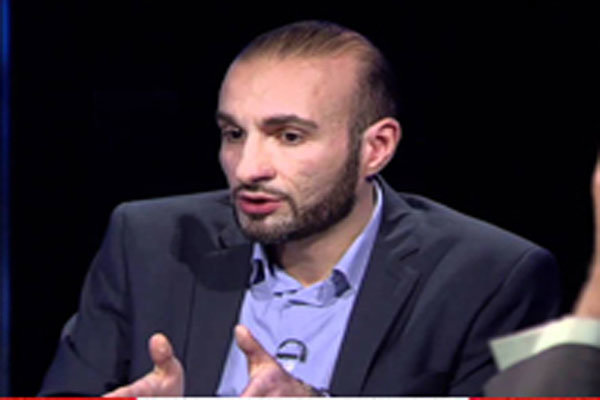Professor in Global Thought and Comparative Philosophies and Chair of the Center for Iranian Studies at the London Middle East Institute, also adds that “It is simply stupid to assume that a pandemic that is by definition global can be battled without global coordination.”
“What we need is better global governance, more multilateralism, a global laboratory with the best scientists that can find a vaccine against pandemics such as Covid-19. Instead, we have psycho-nationalism,” Adib-Moghaddam tells the MNA in an exclusive interview.
Here is the full text of the interview.
What will be the effects of coronavirus on the current world order?
If anything, Covid-19 revealed that there is a lack of political rationality and a great amount of governmental inaptitude, which defies any talk of “orders” and “systems”. This terrible pandemic comes at a time when we have the worse governments in place. The only order that is visible is based on community bonds. The people, once again, are the ones who are carrying the burden, despite of the incompetence of their political leaders. But on a more abstract level, the pandemic will accelerate a process that had already started – The slow but definite demise of the United States as a global leader.
The current world order is majorly based on neoliberalism and to some extent on realism approaches. What are the deficiencies of the said approaches revealed by coronavirus?
The current international system is more complex than these theories appreciate. In fact, there is nothing “realistic” about much of the talk in government circles, but a lot of irrational “idealism”. So it depends on how we define these terms. What is central is a rational, science-based approach to life and existence on our planet. A global approach that accepts the inevitable interconnectivity of human life which this pandemic so painfully revealed. No theory can capture this inherent complexity of human existence. The failure of “realism” and “neo-liberalism” is exactly that. These are ideas that claim, what they don’t deliver: A functioning and just economy and good governance. We don’t have either, in any of the contexts we are looking at.
Although Corona has drawn the attention of countries to the realist approach and the principle of "self-help", on the other hand, it has led to the inefficiency of the realist approach to security, which is based on "state security" and prioritizes It defines "the security of the ruling elite" and sees the issue of security as purely military. On the other hand, the outbreak of the virus has shown that militaristic economies do not provide public security(human security), and that governments should pay more attention to "human security" in the post-Corona world, and that overlapping "state security" with "human security" is greater than ever. What do you think about this?
The pandemic revealed exactly what realist theories in International Relations are based on: state-centrism. It is simply stupid to assume that a pandemic that is by definition global can be battled without global coordination. What we need is better global governance, more multilateralism, a global laboratory with the best scientists that can find a vaccine against pandemics such as Covid-19. Instead, we have psycho-nationalism. This is the predicament of our age and the challenge of our generation. If we fail, humanity will fail. I think it as dramatic as that.
If we accept that the post-corona world order will be different from the existing one, will the changes be structural and fundamental ones? Which meanings will experience fundamental changes?
A fundamentally new world order can only come about with a fundamentally different conception of governance and a redistribution of political power away from the state. On the communal level we need a federalism that devolves power to small communities to have their own hospitals, care homes, facilities. Defense and formal security can be nationally organised, governance needn’t be. Beyond that federal micro-layer, and the national layer we need a strong global level of governance and multilateral cooperation that is respective of national sovereignty of course. Power needs to be dispersed above and below the nation-state. Only then, can individuals decide for themselves, and only then can we really pool our resources to combat the pandemic, environmental degradation or any other existential threats that connects my fate to yours, and yours to everyone else on the planet. Imagine that!
Interview by Javad Heirannia

























Your Comment